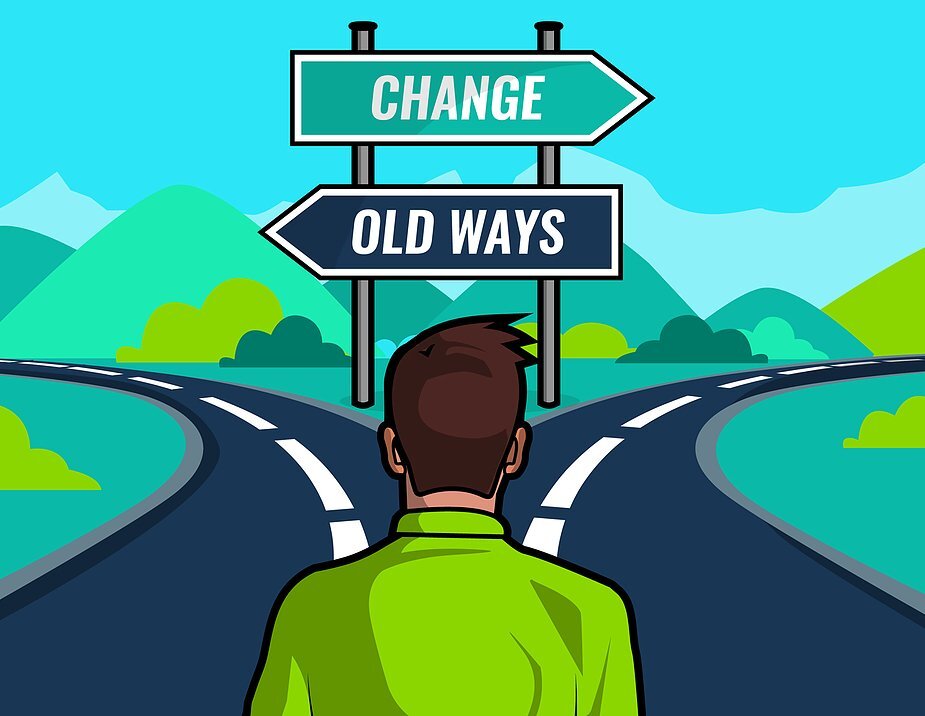There has been so much change in the last few years that you could be forgiven for panting whilst trying to keep up. Monumental changes at the international, national and business level – the Obama administration into the Trump era. Britain deciding to exit the EU. Huge changes in the way commerce is delivered – Uber, Airbnb, fintech, HRtech, deliverytech, foodtech, legaltech…
Business comes in by email, Gmail, SMS and WhatsApp. Have you got it all in order? When was the last time your phone actually rang?
The whole way that we work has changed, and this can be daunting. Leaders are responsible for pioneering huge transformation initiatives that will help keep them in step with their competition or their disrupters, and employees are in the exciting and challenging zone of the changes this brings. Whether you work for the old school or the disrupter, change is your daily bread.
A lot of contacts we work with haven’t always worked out the one thing that can make them feel uncomfortable in these times. It could be that they feel their role is threatened; they might be working in a whirlwind without much direction and left wondering whether they’re doing the right thing; they could have been promoted into a new role based on their potential but not have any real training in how to make a success of the role; or the company itself may be putting forward a set of services that the staff just don’t feel capable of delivering.
There is something that links all of these areas of discomfort though – it’s that change is happening. In order to move into the positive cycle of what change can bring, it’s important to know how to manage change.
How Can I Equip Myself?
I’m pinning my colours to the mast and saying that I think coaching will be the number 1 resource to help leaders and their teams through the relentless change that the next decade (and more) will bring.
Let’s go up one level and work out why.
In any environment of change that I have worked with, in my role as coach and Talent consultant, there is always a differentiating factor that sets those people apart who will make it through the change with the least stress and anxiety. The ones who will look back from the other side, rewarded with the capability build in their skill base, success on their CV and the future options they’ll be able to choose in their career. They are the ones who take ownership of their own personal change and put themselves in the driving seat. They take control.
Are you sitting comfortably?
I’d like to ask you to take part in a visualisation practice with me. There will be two scenarios, so give yourself five minutes somewhere quiet and let’s go through the following exercise:
The scenario
Your employer has announced a transformation that will change the types of skills needed and the way teams are structured and managed. What is your reaction?
First, visualise yourself hearing this news. What are your first emotions? What are the questions that you want to ask and to whom? What answers do you hope to hear? Are you excited? Are you nervous? Why?
Scenario #1: Wait and see
Next, I want to ask you to imagine that after this first piece of information has hit home and you acknowledged the way it made you feel, you do nothing. You wait. You head back to your desk and you carry on with your work (perhaps hoping you won't be caught up in the changes coming your way), and you wait to hear what the leaders will say next.
One week later, you haven’t heard any further information. How do you feel now? What would you like to happen at this point?
Scenario #2: Taking control
In the second scenario, imagine that after the news has sunk in, you begin to build a set of action points that you would take on as a response to what you’ve heard. What would they be? Are you worried about anything? How could you address the worry head on? Are you excited? What are you hoping for – what would be the ideal outcome of the situation for you? Is there anything you could be doing right now that would make that ideal outcome more likely? What do you need to do next? Is there anything that could stand in your way? How will you take steps to mitigate it? What resources do you need? Who can help you?
Having worked through those visualisations, and perhaps written yourself some notes around those questions, what is the different effect of being in scenario #1 or #2?
I don’t know the answers to the questions above. They are your own. But I do hope that when you take control of the change that is all around you, by planning what you would like your own journey to be and taking steps to get there, change becomes a lot more exciting and a lot less stressful.
If you are going through change in the workplace and need some support and guidance to manage it, we invite you to book a coaching session with one of our coaches.
#change #changemanagement #coaching #singapore #success
.jpg)